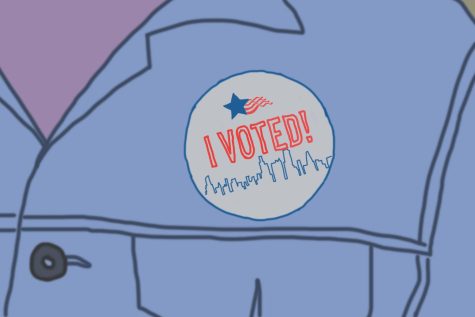Youth turnout sees 40% to 50% increase in mayoral runoff election
April 14, 2023

2023 ELECTION
After shockingly low youth voter turnout was reported for the Feb. 28 mayoral election, they made up for it on April 4 for the runoff election, casting thousands of ballots.
Voters ages 18 to 24 saw an increase of 5,000 more votes, as of April 10, and voters aged 25 to 34 saw an increase of more than 17,000 more votes, according to municipal election results.
Max Bever, director of Public Information at the Chicago Board of Elections said these results are “history-making.”
“A 5,000 vote difference… means that nearly 40%, or maybe even 50%, more of the registered voters that turned out last time on Feb. 28 turned out this time,” he said, referring to the April 4 runoff election.
For the Feb. 28 municipal election, there was a 3% voter turnout rate for registered voters aged 18 to 24 and a 15% voter turnout rate for registered voters aged 25 to 34, according to the Chicago Board of Elections. The final numbers for the April 4 election are still being counted.
In contrast, the Board of Elections saw a decrease in older voter turnout.
Voters aged 65 to 74, and 75 and up, saw a decrease in about 5,000 votes for each age group, compared to the February municipal election Bever said.
Bever said public discussion about the low youth turnout after the February election may have encouraged more youth to vote in April.
“I think a lot of hectoring from a lot of folks focused on the youth turnout leading into April 4… apparently worked. That message was heard,” he said.
Bever also said only having two mayoral candidates, who also had very different campaign platforms, on the ballot as opposed to nine may also be a reason for the increase in voter turnout.
Bever said younger voters should be praised for the increase, and that these results show “a good number of people within Chicago were listening, realizing how important this election was and showing up on election day.”
Nonprofits and other organizations like Chicago Votes put on events encouraging youth voting leading up to the election, such as holding student events at polling booths, voter registration parties at schools and advertising civic engagement in places where young people would be.
Tre King, a fellow with the Give A Sh*t Collective at Chicago Votes, a nonprofit organization encouraging youth voting, said the increase in youth voter turnout makes him “feel overwhelmed with joy.”
“It’s a proud feeling,” King, a graduate student in the Cinema and Television Directing program, said.
King said he “constantly saw Brandon Johnson all over the city, whether it was different rallies or events or functions surrounded around different identities like race, sexuality, etc.”
Katrina Phidd, the director of communications for Chicago Votes, said she thinks many young people voted for Johnson, possibly leading to his victory.
“The platform [Johnson] was running on had a lot of the same ideas that young people have been mobilizing around for decades,” she said, highlighting the movement to defund the police that young people protested for in 2020 and Johnson’s acceptance of that movement.
Phidd said Chicago Votes invited both candidates to their “Sh*t Talk” podcast to discuss issues concerning young people. Johnson went on the podcast, but Vallas did not.
“Young people are passionate and concerned about issues… it’s just a matter of connecting the dots and making sure young people have access to all the information they need to then act upon those feelings,” Phidd said.







